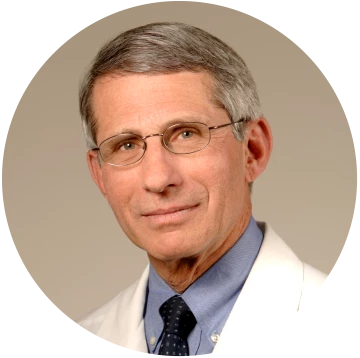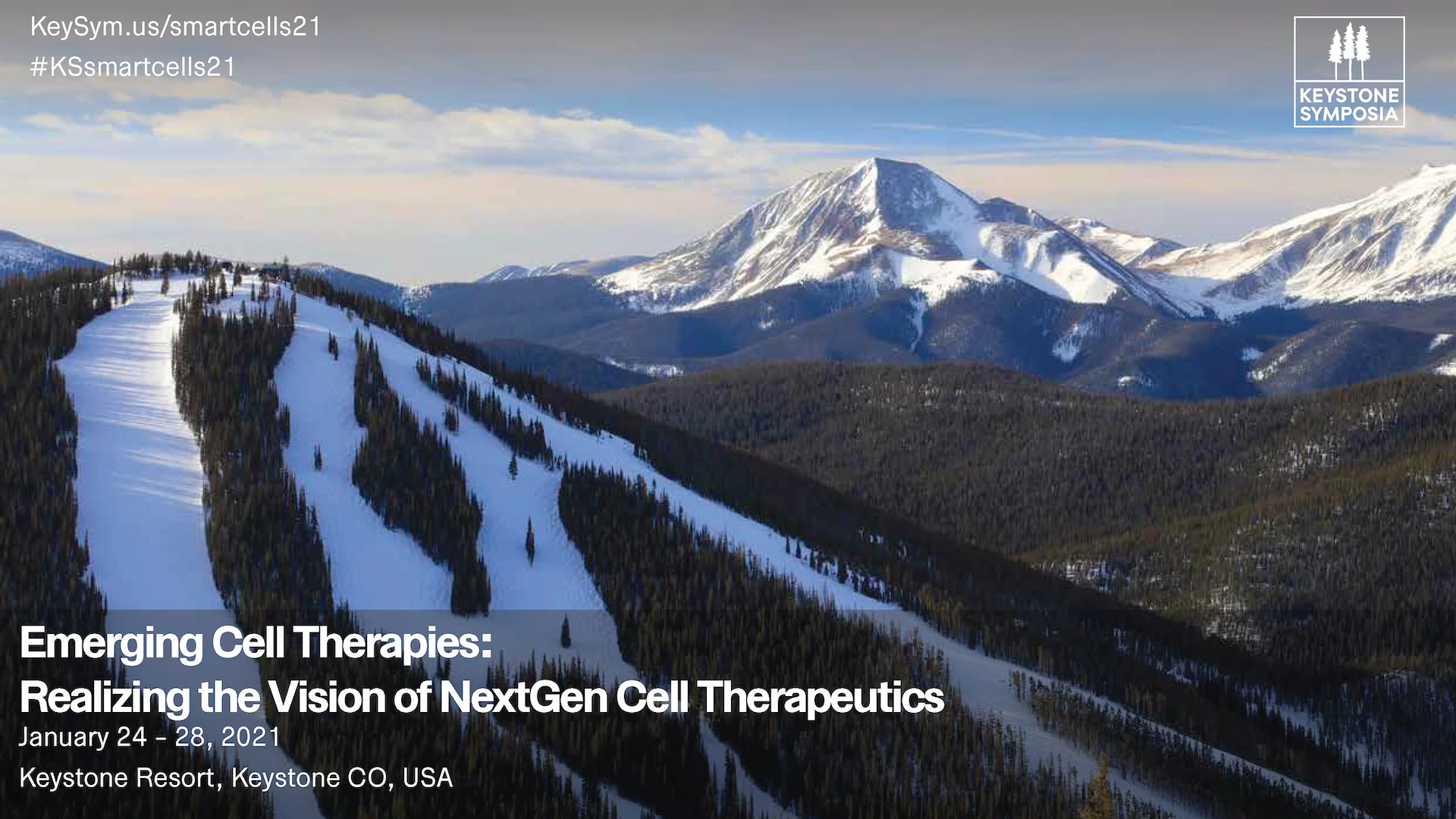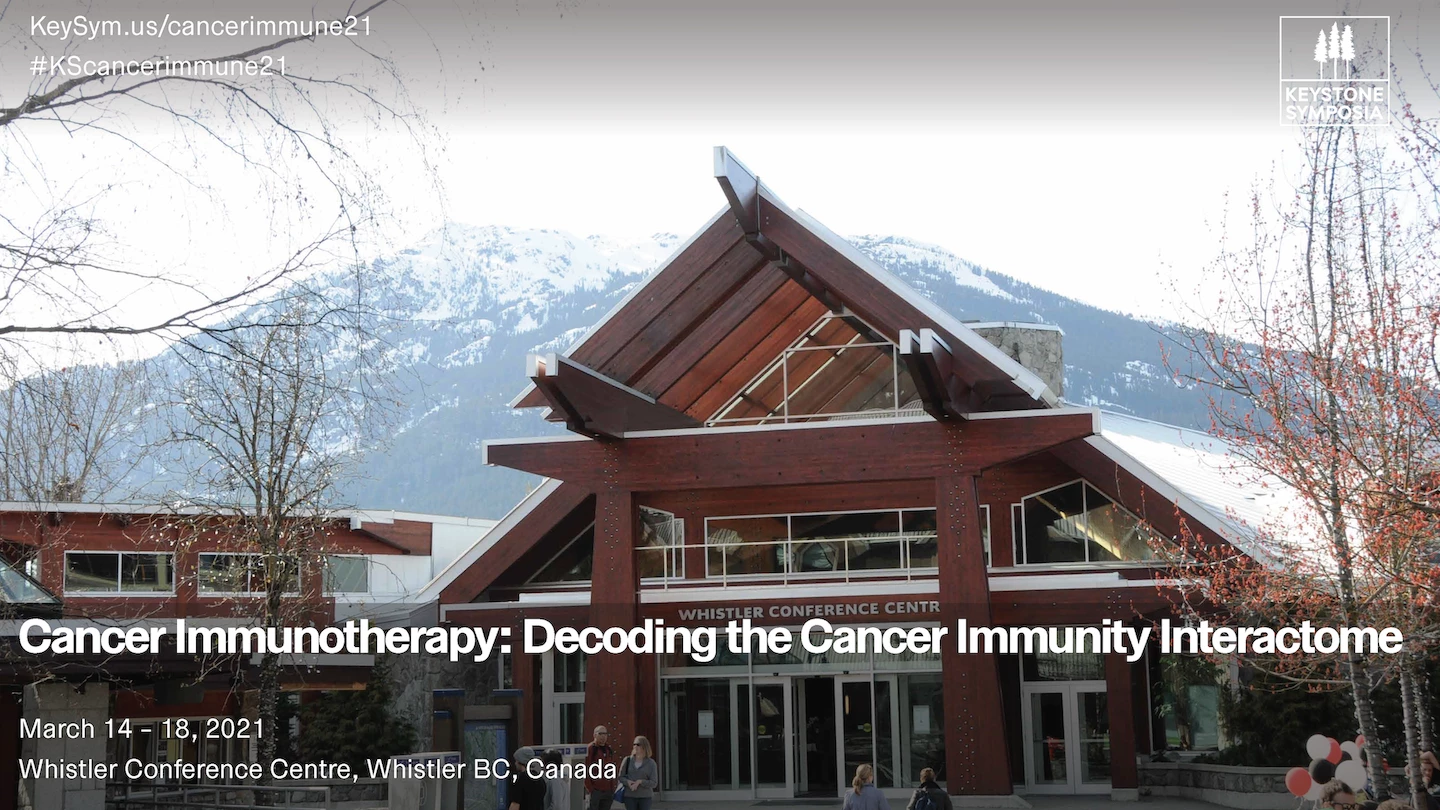
Emerging Cell Therapies:
Realizing the Vision of NextGen Cell Therapeutics
January 25-27, 2021 | 10:00AM EST | 3:00PM UTC | 4:00PM CET*
*Program is in development and subject to change
Attention
The live portion of this conference has concluded and all presentations are now available for purchase on demand. Registrants to the live event may access this content anytime for up to 9 months following the event.
Free Access to On Demand Content to Scientists from Low-and Middle-Income Countries
Keystone Symposia welcomes the global scientific community and aims to connect researchers within and across disciplines to accelerate the advancement of biomedical and life sciences. This form may be used for scientists from low- and middle-income countries of all career stages to determine eligibility and request free access to scientific content presented during recent eSymposia events. If eligible, you will be sent an access code for the On Demand content of the eSymposia event(s) of interest.
Cellular therapeutics are poised to be a next pillar of medicine along with small molecules and biologics. These living drugs have a unique capacity for more complex decision-making and therapeutic responses, potentially alleviating the need for chronic treatment. Next-generation cell therapies will need to adapt and respond to disease progression, essentially functioning as microscopic “physicians” capable of sensing, diagnosing, and eradicating disease via multifaceted mechanisms that are difficult to resist yet similar to our natural immune system. Advances in engineered T cell therapeutics are being FDA approved and are now transforming treatment plans for cancers that previously had few therapeutic options. While there have been unprecedented complete responses in a subset of hematological malignancies, the current therapies can show significant toxicity and on the other hand show a lack of efficacy in solid tumors. Beyond cancer, engineered cell therapies could have significant impact in the treatment of autoimmunity, metabolic disorders and in regenerative medicine. This conference will therefore cover next-generation cellular engineering approaches designed to tackle refractory diseases such as solid tumors, while also addressing the higher safety requirements for diseases beyond late-stage metastatic cancers. This conference brings together clinically minded cell therapists, synthetic biologists, genome and protein engineers, systems biologists, and immunologists; this combined expertise is essential to establish cells as a safe and effective therapeutic strategy across a range of diseases. Smart cellular therapeutics of the future must be easily customizable, have intrinsic control systems to prevent toxicity, and be able to overcome rapidly evolving mechanisms preventing disease resolution; this conference aims to address these topics by convening global experts across a range of relevant disciplines.
Pricing:
Regular Registration Rate: $275 USD
Student Registration Rate: $150 USD
Deadlines:
Abstract Submission:
‣ For Short Talk Consideration: Passed
‣ For Poster Booth: Passed
ePoster / SciTalk Submission: January 14, 2021*
Financial Aid Application: Passed
*Please note, abstract submission is required
in order to submit an ePoster and/or Scitalk
#VKSSmartCells21
Speaking at this eSymposia
David Baker
University of Washington, USA
Christine E. Brown
Beckman Research Institute, City of Hope, USA
Dario Campana
National University of Singapore, Singapore
Yvonne Y. Chen
University of California, Los Angeles, USA
Tal Danino
Columbia University, USA
Tara L. Deans
University of Utah, USA
David Edward Gilham
Celyad, Belgium
Saar I. Gill
University of Pennsylvania, USA
Jane L. Grogan
Arsenal Biosciences, USA
Darrell J. Irvine
Massachusetts Institute of Technology, USA
Dan S. Kaufman
University of California, San Diego, USA
Ahmad S. Khalil
Boston University, USA
Megan K. Levings
University of British Columbia, Canada
Timothy K. Lu
Massachusetts Institute of Technology, USA
Alex Marson
University of California, San Francisco, USA
Marcela V. Maus
Harvard Medical School, USA
Miriam Merad
Mount Sinai School of Medicine, USA
David J. Mooney
Harvard University, USA
Martin Pule
University College London, UK
Aaron Ring
Yale School of Medicine, USA
Isabelle Riviere
Memorial Sloan Kettering Cancer Center, USA
Kole T. Roybal
University of California, San Francisco, USA
Barbra Sasu
Allogene Therapeutics, USA
Andrea Schietinger
Memorial Sloan Kettering Cancer Center , USA
Tatiana Segura
Duke University, USA
Matthias Stephan
Fred Hutchinson Cancer Research Center, USA
Joseph C. Sun
Memorial Sloan Kettering Cancer Center, USA
This new virtual meeting format came out of difficult circumstances, but your commitment to scientific progress is what inspired us to launch Keystone eSymposia. In these virtual meetings, we are capturing the same innovative essence of our in-person meetings that you've all created as a scientific community. Here, Debbie Johnson, our CEO, explains how we're going to do that.
The views expressed in this eSymposia are those of the participants and not necessarily of the participants’ organizations or of Keystone Symposia.
Donate to Keystone Symposia






















